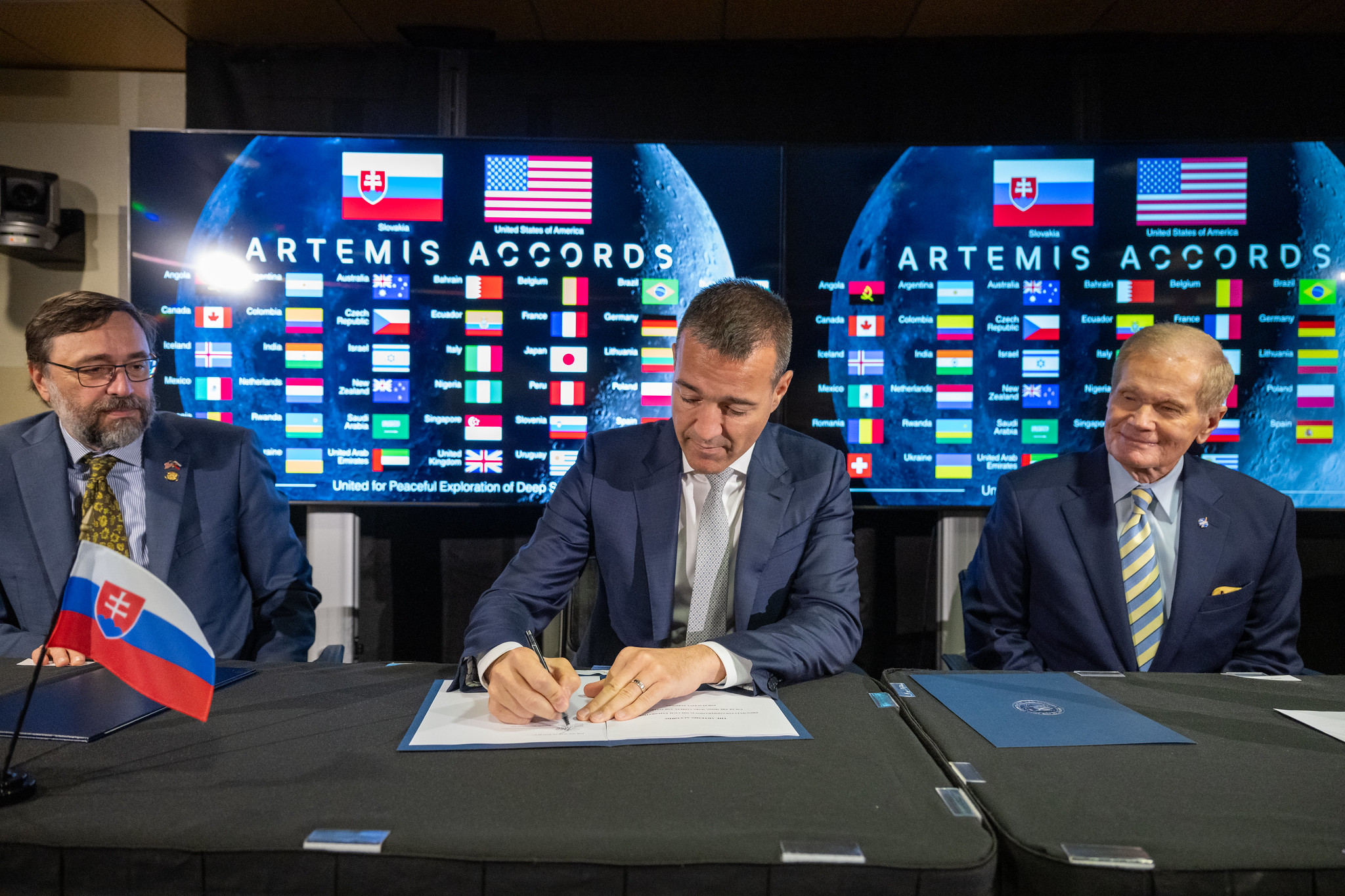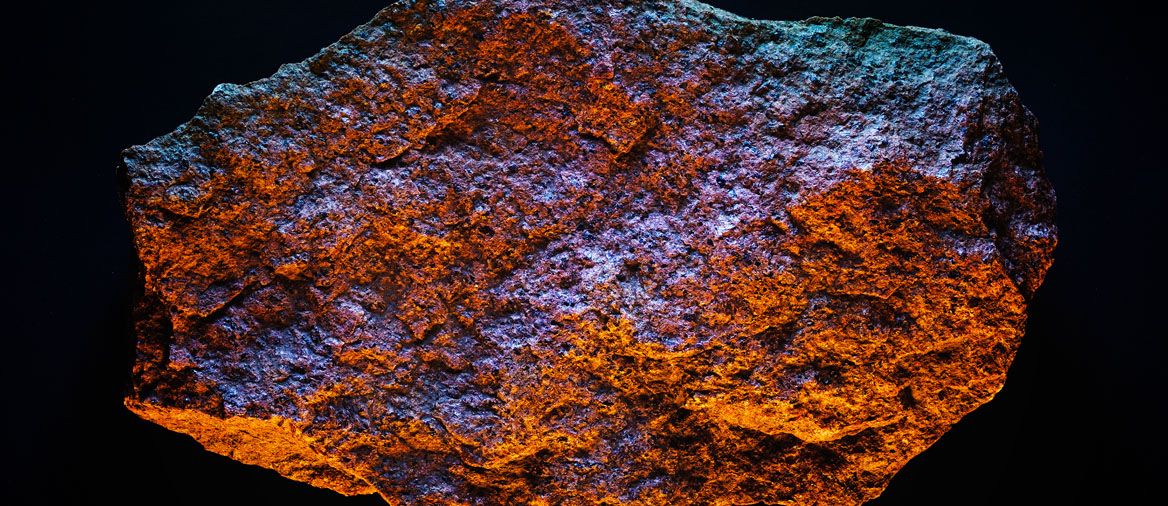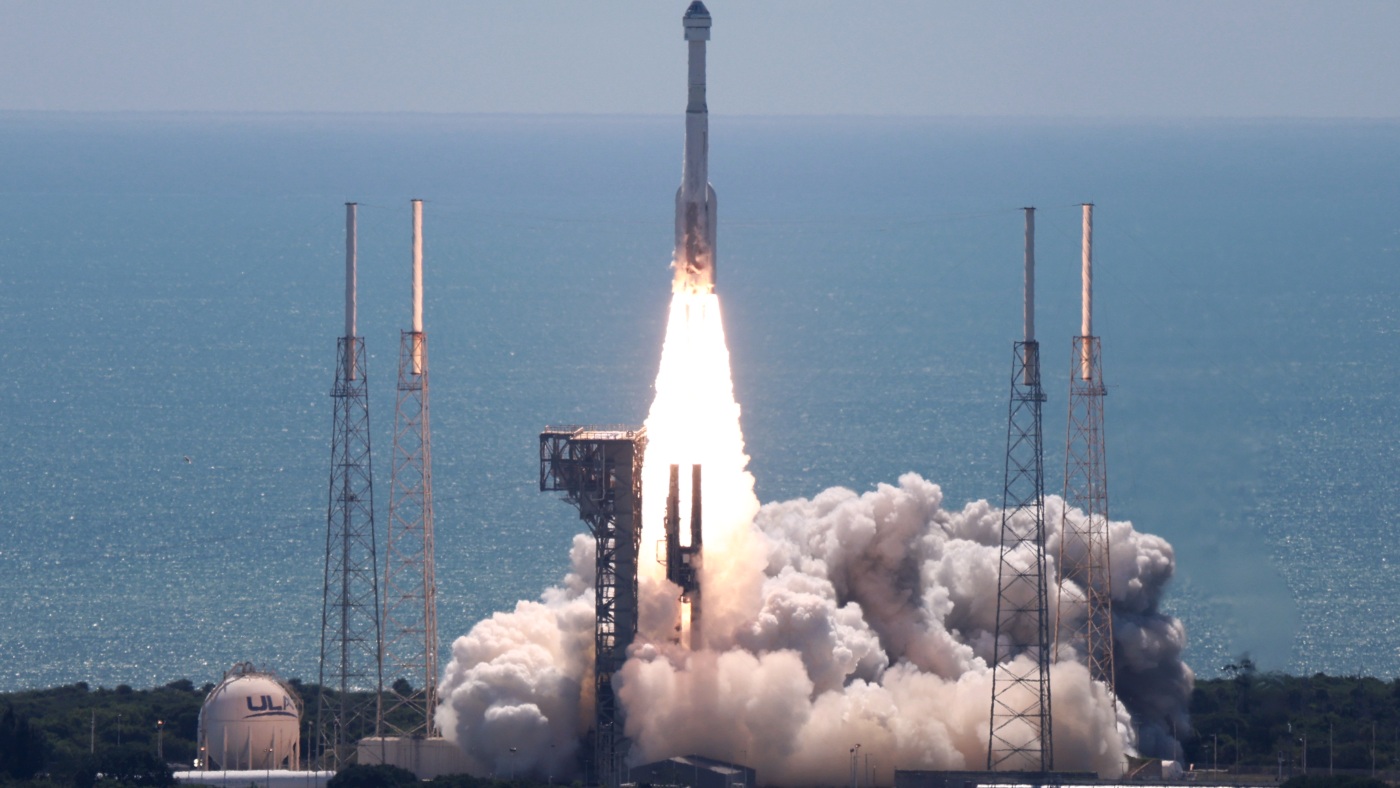WASHINGTON — Peru and Slovakia signed the Artemis Accords outlining best practices for responsible space exploration, bringing the number of countries who have signed to 42.
In separate ceremonies at NASA Headquarters May 30, Peru’s foreign minster, Javier González-Olaechea, and Tomáš Drucker, Slovakia’s minister of education, research, development and youth, signed the Artemis Accords alongside NASA and U.S. State Department officials.
Peru, a country with limited space capabilities, emphasized how signing the Artemis Accords could open doors for the country. “This opportunity will allow to Peru to participate in activities related to the exploration and sustainable use of space resources as well as to promote scientific and aerospace development in our country,” González-Olaechea said at the signing ceremony.
Peru signaled its intent to sign the Accords at a U.S.-Peru High-Level Dialogue meeting May 9, according to a State Department statement, which also noted that Peru committed not to conduct direct-ascent anti-satellite missile tests. Peru has not expressed any interest in, or ability to conduct, such tests.
Peruvian Foreign Minister Javier González-Olaechea after he signed the Artemis Accords May 30 at NASA Headquarters. Credit: NASA/Keegan Barber
Drucker discussed the interest Slovakia, a member of the European Union and an associate member of the European Space Agency, has in space sustainability, which is a key aspect of the Artemis Accords. Slovakia is one of a dozen European countries that signed the ESA-led Zero Debris Charter on limiting the creation of orbital debris May 22.
“In today’s rapidly expanding space activities, it is very important to set rules for long-term safety of outer space,” he said. “These rules should ensure that space activities are safe, clean and sustainable, benefiting all nations. By fostering commercial and public private partnerships and hastening international cooperation, we can achieve these goals together.”
“At the heart of the Artemis Accords are two truths, and the first is that space presents challenges that no nation, no matter how determined, can solve alone. And therefore we do not go alone, we go together,” NASA Administrator Bill Nelson said at the Slovakia signing ceremony. “The second truth is that space is an engine for partnership. Space unites nations in a way that few other things can.”
Peru and Slovakia are the eighth and ninth nations, respectively, to sign the Artemis Accords this year, bringing the total number of nations who have signed on to 42. At the Meridian Space Diplomacy Forum in April, officials with NASA and the State Department, which jointly administer the Accords, said they were seeing growing interest in the Accords.
“The increasingly rapid growth the Artemis Accords demonstrates a global belief in a better future for humanity in space,” Mike Gold, chief growth officer of Redwire and a former NASA official who led development of the Artemis Accords, told SpaceNews. “During a time when we see so much conflict and pain in the world, Artemis provides a light that can show us a path toward a future full of wonder.”
The signing ceremonies took place a week after 24 of the then-40 nations who signed the Accords met at the headquarters of the Canadian Space Agency outside Montreal for a second annual workshop. The participants discussed topics such as non-interference and interoperability, two elements of the Accords, and also conducted a tabletop exercise on those issues.
Representatives of Artemis Accords nations are scheduled to meet again in person during the International Astronautical Congress in Milan, Italy, in October.
Related




